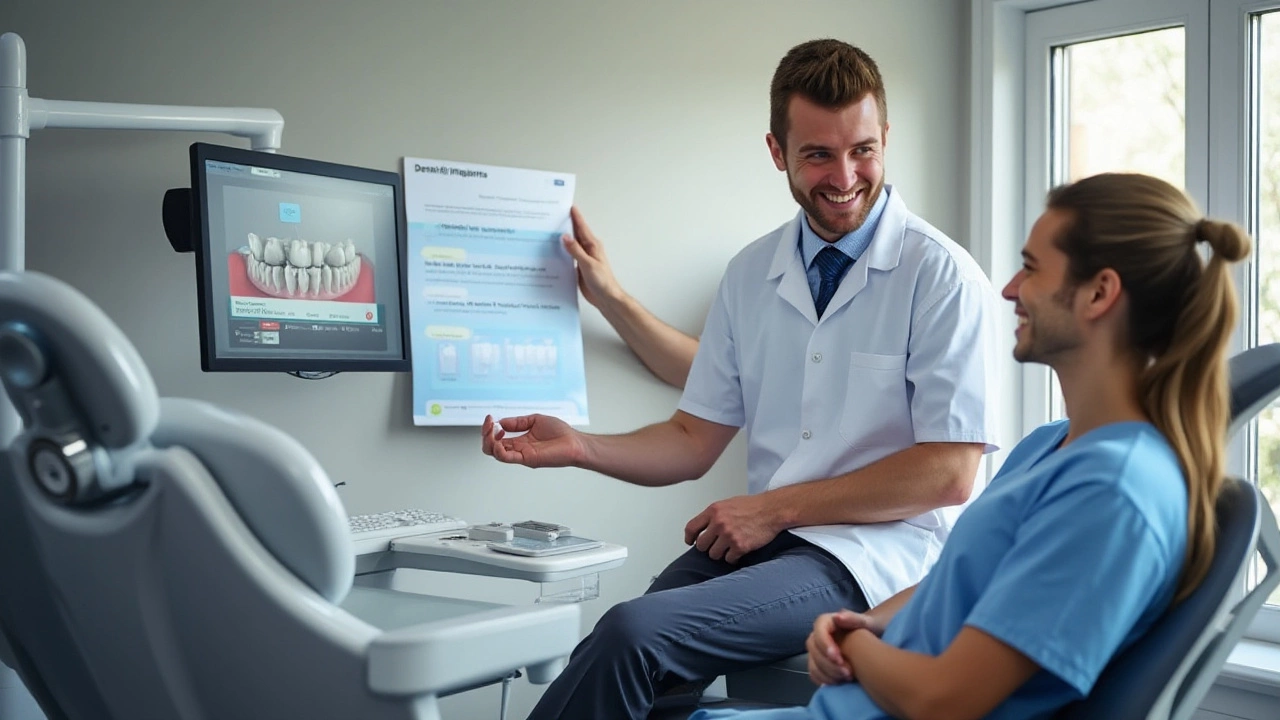Dental Clinic UK: Practical Guide to Care, Costs and Choices
Did you know a routine check‑up at a private UK dentist can start at £30, while a simple filling may run £80‑£120? Knowing the price range helps you plan ahead and avoid surprises. Below you’ll see what a typical dental clinic offers, how NHS and private services differ, and where you can save if you need bigger work.
What a UK Dental Clinic Usually Provides
Most clinics have a clean waiting area, a digital X‑ray room and a chair that swivels for comfort. You’ll get a quick health check, a cleaning, and a discussion of any problems. If you need a crown, root canal or implant, the dentist will take a scan, explain the steps, and give you a clear price estimate before any work starts. Ask for a written breakdown – it’s your right.
Many clinics also offer cosmetic services like whitening or veneers. These are usually private, so the NHS won’t cover them. Expect the cost to depend on the material you choose – porcelain veneers can be £300‑£600 each, while laser whitening might be £150‑£250 for a session.
Private vs NHS: Which Is Right for You?
If you’re on the NHS register, you’ll get essential care at no charge, but you may face waiting times of weeks or months for non‑urgent work. Private patients usually get same‑day appointments and flexible scheduling. The trade‑off is the out‑of‑pocket cost.
For big procedures like dental implants, the NHS only covers them in very specific cases, such as severe bone loss. Most people pay privately, with prices ranging from £1,500 to £3,000 per implant in the UK. Some clinics offer payment plans to spread the expense.
When the price feels too high, many consider dental tourism. Countries like Hungary, Poland or Turkey can perform implants for £500‑£800 each, often with high standards and English‑speaking staff. Before you book, check the clinic’s accreditation and read patient reviews.
For those who simply want a quick fix, “cheap dental work abroad” articles point out that you can save 50‑70% on crowns or bridges, but you should factor in travel costs and a possible follow‑up visit back home.
Back in the UK, if pain after an implant worries you, look for clinics that offer a clear after‑care plan. Pain levels vary, but most people describe mild discomfort for a few days, manageable with over‑the‑counter painkillers. If you notice swelling or persistent pain, contact the clinic immediately – it could be a sign of infection.
Finally, keep an eye on your dental health daily. Brush twice, floss, and use a fluoride mouthwash. Regular check‑ups catch problems early, saving you from costly procedures later. Whether you choose NHS, private care, or an overseas option, a little prevention goes a long way.
How to Finance Dental Implants in the UK Affordably
Navigating the cost of dental implants in the UK can seem daunting, but with the right information, the process becomes manageable. This guide explores different ways to finance dental implants, highlights options like insurance coverage, and discusses payment plans available through dental clinics. Discover tips for finding affordable dental care, and learn useful insights to make informed decisions about your dental health investment.

